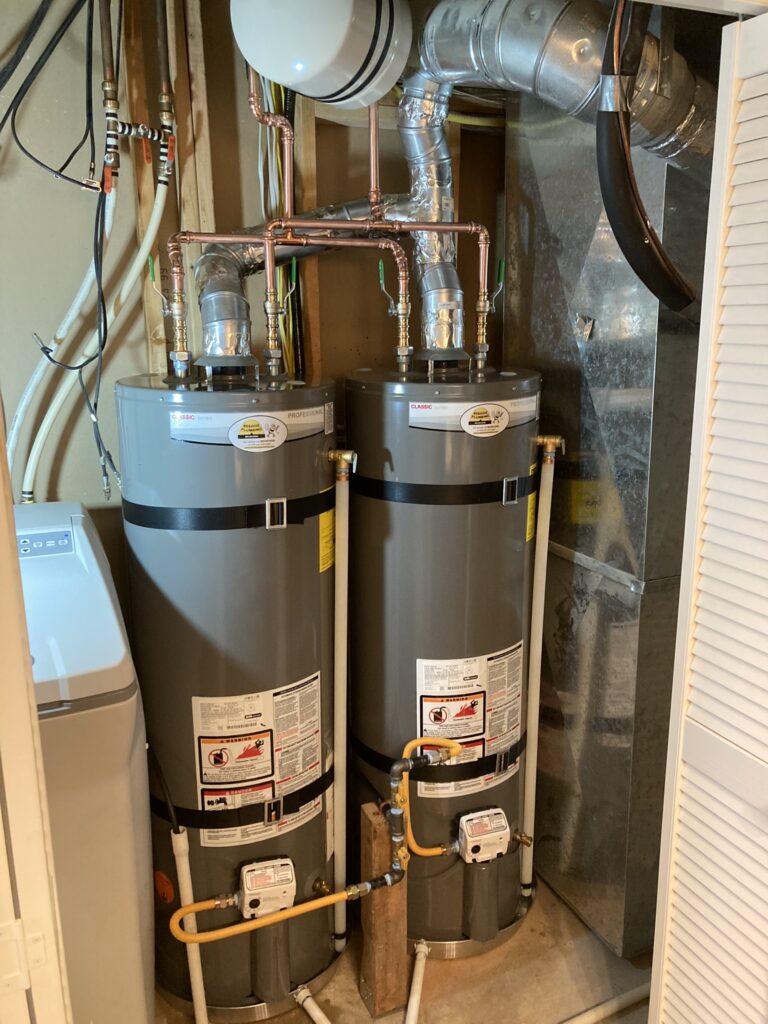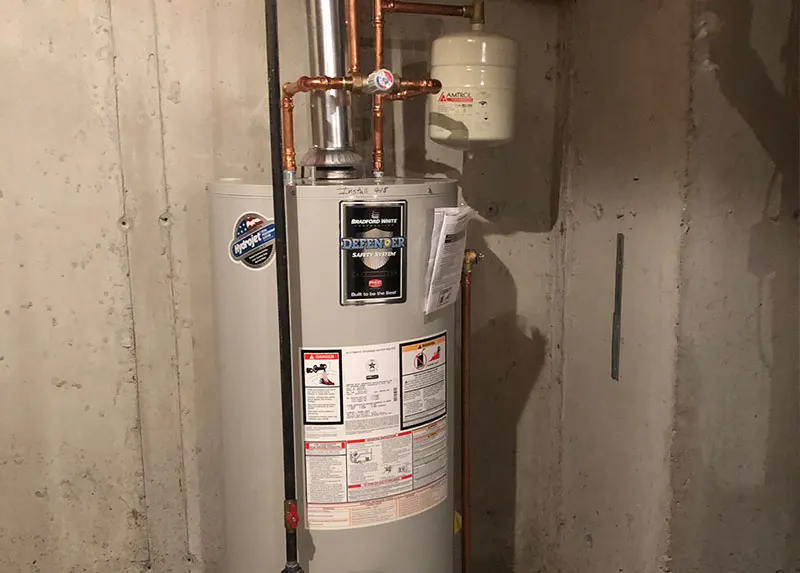Complete Guide to Water Heating SystemInstallation and Replacement
Recognizing the intricacies of hot water heater installation and substitute is critical for property owners looking for to make certain efficiency and dependability in their warm water supply. From selecting the suitable kind and dimension to executing a seamless installment procedure, several variables need to be taken into consideration to stay clear of common pitfalls. This guide will supply you with the required steps and understandings to browse the complexities of this home renovation task, while likewise highlighting essential upkeep techniques that can lengthen the life of your system. As you discover these facets, you might locate on your own reassessing your existing configuration and recognizing locations for renovation.
Sorts Of Water Heating Units
When thinking about water heating unit setup and replacement, it is vital to understand the various types of hot water heater available on the market. One of the most typical types consist of storage tank hot water heater, tankless water heating systems, warmth pump hot water heater, and solar hot water heater.
Storage tank water heating systems are conventional systems that save a particular quantity of warm water, making them easily offered when required. In contrast, tankless water heating units provide hot water on need, eliminating the requirement for storage space.
Heatpump water heating systems utilize power to transfer warm from the air or ground to warm water, supplying significant energy cost savings yet calling for more space and particular installment problems. Solar water heating systems harness solar power to heat water, providing an environmentally friendly option with potential long-term cost savings, although they typically need a back-up system for gloomy days.
Understanding these alternatives ensures educated choices pertaining to installment and substitute, dealing with specific demands and choices.
Choosing the Right Size
Picking the proper size for a hot water heater is essential to guarantee ideal performance and effectiveness. A system that is too small will certainly have a hard time to meet household needs, resulting in irregular warm water availability and raised energy intake. On the other hand, an oversized water heating system can result in unneeded energy waste and greater utility costs.
To identify the appropriate dimension, think about the family's top warm water usage. This can be determined based on the number of owners and their regular warm water needs. As an example, a family of four might require a hot water heater with a capacity of 50 to 80 gallons, depending upon the use patterns, such as simultaneous showers and laundry.
Furthermore, assess the recuperation rate, which gauges exactly how swiftly a heating unit can replenish hot water after it has been utilized. For tankless versions, focus on the circulation price, measured in gallons per minute (GPM), to ensure it satisfies the house's simultaneous need.

Installation Refine Overview

Next, the old unit has to be detached and removed, taking treatment to comply with local codes and laws relating to disposal. Once the old unit is out, the brand-new water heating unit can be positioned in position. This action entails linking the supply of water lines, guaranteeing that all installations are leak-free and secure.
After developing water connections, it's important to attach the power supply, whether electric or gas, adhering to the producer's guidelines diligently. Once all links are made, the system should be loaded with water, and the power can be turned back on. Finally, it is essential to look for leakages and make sure the hot water heater is functioning appropriately prior to completing the setup procedure.
Typical Setup Blunders

One more constant error is neglecting to adhere to local codes and guidelines. Stopping working to follow these standards can not just result in safety and security risks but may additionally cause expensive penalties or the requirement for pricey reinstallation. Additionally, inappropriate venting is a critical problem. Inadequate air flow can trigger harmful gas build-up, presenting significant health and wellness threats. see here now
Incorrect plumbing links are additionally a prevalent error. Falling short to safeguard connections or using the wrong sort of fittings can result in leaks and water damages. Overlooking the importance of a proper drainpipe frying pan can result in substantial water damage if leaks do occur. Insufficient insulation of pipes can lead to heat loss, reducing performance. By staying clear of these typical setup mistakes, house owners can ensure their water heater operates safely and efficiently, making best use of performance and longevity.
Maintenance Tips for Long Life
Appropriate upkeep of a hot water heater is vital for its longevity and ideal performance. Routine look at this now evaluations and maintenance can avoid pricey repair work and expand the home appliance's lifespan. Begin by examining the temperature setup; it should normally be set in between 120 ° F and 140 ° F for optimum energy performance and security.
Every 6 months, flush the container to remove debris accumulation, which can impair home heating efficiency and trigger deterioration. To do this, shut off the heating unit, attach a hose pipe to the drainpipe shutoff, and let the water run up until it is clear.
When they are rusted,Anode poles ought to be evaluated annually and replaced. These rods assist protect against tank rust by bring in harsh elements in the water.
Additionally, inspect the stress alleviation shutoff on a regular basis to guarantee it is operating correctly. This valve is important for stopping too much stress build-up within the tank.
Lastly, think about arranging an expert upkeep check every couple of years for detailed inspections and servicing. By adhering to these upkeep pointers, property owners can dramatically improve the effectiveness, security, and life expectancy of their hot water heater, making certain trusted warm water for years to find.
Final Thought
To conclude, appropriate installation and maintenance of hot water heater are critical for ensuring performance and long life (water heater installation). Picking the ideal kind and size, sticking to setup guidelines, and avoiding usual errors considerably add to optimal efficiency. Routine maintenance checks and specialist servicing help endure performance and prevent pricey repair work. By understanding these essential facets, property owners can achieve a reliable warm water supply while reducing possible problems related to water heating unit operation. More Help
Comprehending the intricacies of water heating unit setup and substitute is important for homeowners seeking to make sure efficiency and dependability in their warm water supply.Container water heaters are standard systems that save a particular quantity of warm water, making them readily available when required. In comparison, tankless water heating systems offer hot water on need, removing the need for storage. Picking a water heater that is either too little or as well huge can lead to inefficiencies, resulting in inadequate hot water supply or extreme energy intake.
By recognizing these essential facets, homeowners can achieve a dependable warm water supply while lessening potential problems related to water heater operation. plumber Denton.